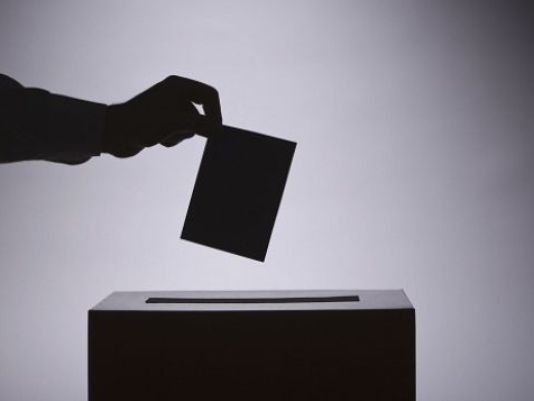You’re a candidate for local office. You have about two weeks to reach voters in your community to seek their support.

Most have never heard of you. If they have, they probably don’t know much about you. Those who plan to vote, or might vote, are searching for morsels of information about the candidates they have to choose from. In Vancouver, they have to weed through 71 council candidates to choose up to 10. In Maple Ridge, they pick 6 from a field of 21.
It’s crowded. It’s complicated. How do you reach those voters and stand out?
READ MORE: Bingo! City of Vancouver holds draw to randomize names on election ballot
Not that long ago, candidates for local government reached voters through a fairly limited menu of door knocking, putting up lawn signs, mainstreeting, phone calls, brochures, print ads, and media coverage, which in most communities is the weekly paper.
All of those things mentioned above are still there, but modern campaigns must be relentless in reaching voters because voters can’t be found in the same places anymore. Most won’t answer landline phone calls, even if they have a landline. More people live in hard-to-access condos. Fewer people read the newspaper; media and information sources are fragmented. Most voters steer clear of all-candidates meetings.
- RCMP disputes claim of agreement over Surrey transition in leaked letter to solicitor general
- ‘Racialized police brutality’: Indigenous leaders decry Vancouver arrest caught on camera
- Family hopes B.C. teen’s devastating crash spurs motorcycle safety
- Feel-good Friday: Global BC’s highlights of the week
The biggest change in campaigning in the past 10 years has been social media. A study for Pollara Research found that 80 per cent of Canadians use Facebook, including 88 per cent of Millennials. Over 40 per cent reported using it several times a day and almost 90 per cent said they used it at least a few times a week. While older people are less adventurous on social media, most Millennials also report using Instagram and almost half report using SnapChat.
READ MORE: Enough candidates means residents of Lumby to participate in B.C. civic election
The Pollara report also found that social media users prioritize posts from friends, family, peers, and co-workers. Therefore, local government candidates are marketing their messages through personal networks that they hope will get shared to broader audiences. Candidates can also pay for promoted posts that can be targeted by demographic, and link back to their own social media pages or website. And where are people reading this? More respondents say they are reading it on their smartphone.
Still, if everyone’s doing it, how do you stand out? Many candidates will re-post news stories where they are profiled or mentioned. Mainstream media are regarded as legitimate sources of information that voters will accept. Voters are looking for authenticity and an objective news story is one way to promote yourself — as long as you didn’t put your foot in your mouth!
If you’re campaigning in Richmond, Vancouver, or Burnaby, you may be more focused on WeChat, popular in the Chinese community. For non-Chinese, it’s largely invisible. But in Metro Vancouver, there are over 400,000 Chinese-Canadian residents. Similarly, in the South Asian, Korean, Filipino, and Persian communities, there are targeted ways to reach those voters.
WATCH BELOW: Concerns about randomized ballots in Vancouver civic election

Have you been “robo-called”? That’s when you answer the phone and receive an automated message with a sales pitch from Candidate X asking you to “press 1” if you support him or her. Do that, and you’ll be guaranteed to receive another robo-call on Election Day reminding you to vote. You could be on that list because you are someone who has been identified as like-minded or they might just be phoning everyone — I mean, the robot might be calling everyone.
Robo-calls are happening on cell phones too. Plus now, you might be getting unsolicited text messages asking you to respond with support.
Then there’s the campaigning that third parties undertake to support candidates who are aligned with their views or to oppose candidates who are contrary. Some groups issue endorsements and let them percolate into social media for attention. Others put money behind it. We have already seen Labour groups and businesses inject themselves into the 2018 campaign.
COMMENTARY: Wave of changes coming in Metro Vancouver municipal politics, Mike McDonald says
There are many other tactics — some that have never been tried before and others that are tried and true. Have you heard of “Burma-shaving”? Burma-Shave was an American brand of shaving cream that posted humorous rhyming poems on small sequential highway roadside signs. In my first election campaign as a volunteer, I stood on the side of the Lougheed Highway in support of my candidate, Mae Cabott. I was the “habit” sign in a sequence of “Make it a Habit … Vote for … Cabott.” These days, campaigns are less daring and volunteers just stand on a bridge and wave candidate signs at drivers. (We still call it Burma-shaving though).
Why do campaigns desperately wave signs at drivers? For the same reason they knock on doors, post on Facebook, and attend cultural events. It’s about connecting with people and making a personal impression — standing out. Those voters are searching out information and that one encounter — a handshake, a brief discussion, a smile — is a window through which a voter can judge a candidate.
Until Oct. 20, candidates will be seeking to stand out with their ideas and their personal story. A funny hat, a photo of their kitten, or a skydiving selfie might help, too.
Mike McDonald is chief strategy officer with Kirk & Co., senior research associate with Pollara Strategic Insights, and served as chief of staff to former B.C. premier Christy Clark.
Tune into Global News and BC1 coverage of the local elections to see how your candidates are standing out in your community.



Comments